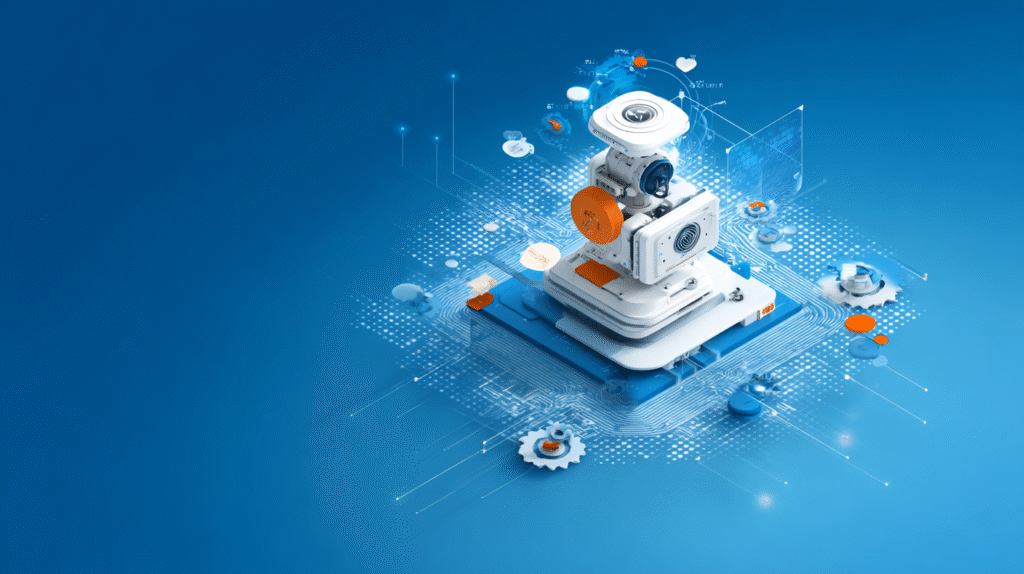Artificial Intelligence (AI) is not just a technological marvel; it is actively reshaping entire industries, with healthcare standing out as one of its most impactful domains. In nursing, AI tools are becoming integral in optimizing workflows, enhancing patient care, and ultimately transforming the nursing profession. However, as with any innovation, this shift comes with its own set of challenges that need to be addressed. This blog post delves into the implications of AI in nursing, highlighting critical challenges and providing actionable insights, especially tailored for healthcare professionals, nursing educators, and hospital administrators.
The Role of AI in Nursing Workflows
AI technologies are revolutionizing nursing practices by streamlining workflows and improving efficiency. For instance, AI-driven electronic health records (EHR) enable nurses to access patient data more quickly and intuitively. Not only does this reduce the time spent on documentation, but it also allows nurses to focus more on patient interactions.
Moreover, AI algorithms can analyze large datasets to assist nurses in making better clinical decisions. For example, predictive analytics can alert nurses to potential complications in real-time, thus improving patient outcomes. The integration of AI in decision support systems highlights how technology can assist in critical thinking rather than replace human intuition.
Key Challenges in Implementing AI in Nursing
While the benefits of AI in nursing are significant, the journey toward widespread adoption is riddled with challenges:
- Integration of AI Tools: One of the biggest hurdles is integrating AI solutions with existing healthcare systems. Melding new technologies with established workflows demands thoughtful planning and training, which can be resource-intensive.
- Overcoming Biases: AI systems often inherit biases present in the training data, leading to skewed outcomes. It’s imperative to ensure that AI tools are tested against diverse data sets to minimize disparities in care.
- Privacy and Security Issues: The sensitive nature of healthcare data makes privacy a paramount concern. As healthcare becomes increasingly digital, safeguarding patient information from breaches is critical.
- Inclusion of Nurses in AI Governance: For AI tools to work effectively, input from nursing professionals is essential in their design and implementation. Ensuring that nurses have a voice in AI governance can lead to tools that genuinely enhance their capabilities.
Integration Strategies for Healthcare Professionals
To tackle these challenges effectively, healthcare institutions need to implement strategic frameworks. Here are some practical steps:
- Collaborative Workflow Development: Involving nurses in the design phase of AI tools can lead to systems that cater to their specific needs. Collaborative input can also facilitate smoother transitions as staff adapt to new technologies.
- Continuous Training and Education: Providing ongoing AI literacy training can help nurses become proficient in using new technologies. Investing in education ensures that staff can leverage AI to enhance their clinical practices.
- Robust Data Governance Policies: Establishing clear guidelines for data use and protection is crucial. Institutions should foster a culture of privacy, where every staff member understands the protocols surrounding sensitive information.
- Feedback Mechanisms: Implementing channels for nurses to provide feedback on AI tools can enhance their usability. Regularly updating these tools based on clinician input can improve efficiency and acceptance.
Future Trends in Nursing Technology
The future landscape of nursing is poised for remarkable transformations driven by AI. Emerging technologies such as healthcare robotics and telemedicine will further revolutionize patient interaction and care. For instance, AI-powered robotics can assist nurses in routine tasks, such as medication delivery or patient monitoring, thus freeing up more time for personalized care.
Additionally, digital healthcare solutions that utilize AI will continue to emerge, offering more efficient ways for nurses to provide care remotely. As hospitals and clinics increasingly embrace telehealth, the role of AI will be crucial in ensuring that remote care doesn’t compromise the quality of service.
Nurturing Essential Skills for the Future
As the nursing landscape evolves, specific competencies will be paramount. Here are three essential skills that healthcare professionals should focus on:
- AI Literacy: Understanding how AI algorithms work and the implications of their use is essential for making informed decisions in patient care.
- Emotional Intelligence: As technology handles more routine tasks, the ability to connect with patients on an emotional level will become even more vital. Nurses who can empathize and communicate effectively will stand out.
- Adaptability: Embracing change is essential as new technologies emerge. Nurses should cultivate adaptability to integrate AI solutions seamlessly into their daily routines.
Conclusion
Artificial intelligence represents a revolutionary shift in nursing, offering immense potential to improve patient outcomes and enhance workflow efficiency. However, integrating AI tools requires careful consideration of the challenges that come with it. By fostering collaboration, prioritizing education, and reinforcing robust governance, healthcare professionals can navigate this transition with confidence.
As we look forward, it is our collective responsibility to shape the future of nursing. We encourage healthcare professionals to engage with one another and share insights at HIMSS26, an event that promises to be a pivotal moment for the future of nursing. Together, we can harness the power of AI and ensure that nurses remain at the forefront of patient care, equipped with the tools they need to succeed.





